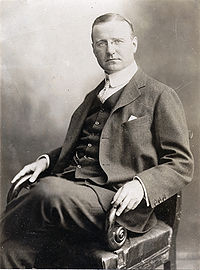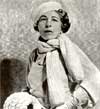
Lennard J. Davis
Born:
Pen Name: None Connection to Illinois: Davis is a professor at the University of Illinois at Chicago. He divides his time between Chicago and New York. Biography: Davis is head of the English Department at the University of Illinois at Chicago where he is also Professor of Disability and Human Development. He is a frequent guest on NPR shows ''Morning Edition'', ''Leonard Lopate'', ''Fresh Air'' and ''This American Life''. He has written for numerous newspapers and magazines including ''The New York Times'', ''McCall's'', ''Redbook'', ''The Nation'' and the ''Chronical of Higher Education''. Davis is also director of ''Project Biocultures'', a think tank devoted to issues at the intersection of culture, medicine, disability, and bio-technology.
Awards:
- -- Guggenheim for ''Obsession, A History''
Website: http://www.lennarddavis.com/
Lennard J. Davis on WorldCat : http://www.worldcat.org/search?q=lennard++j.++davis
Selected Titles
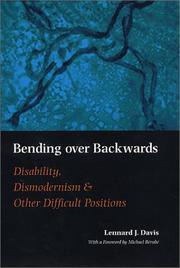 |
Bending over backwards : ISBN: 0814719503 OCLC: 49576943 New York University Press, New York : ©2002. |
 |
Enforcing normalcy : ISBN: 1859840078 OCLC: 32779624 Verso, London ; 1995. |
 |
Factual fictions : ISBN: 0812216105 OCLC: 35325333 University of Pennsylvania Press, Philadelphia : 1997. |
| Go ask your father : ISBN: 9781311521286 OCLC: 842921994 Bantam Books, New York : 2009. |
|
 |
Go ask your father : ISBN: 0553805517 OCLC: 259265975 Bantam Books, New York : 2009. The author describes his search to find out the true identity of his father after being told that his uncle was his biological father through the process of artificial insemination. |
 |
My sense of silence : ISBN: 9780252075773 OCLC: 213451316 University of Illinois Press ; Urbana : 2008, ©2000. |
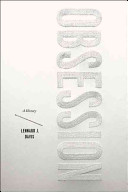 |
Obsession : ISBN: 9780226137841 OCLC: 217263726 University of Chicago Press, Chicago : 2008. From the Publisher: We live in an age of obsession. Not only are we hopelessly devoted to our work, strangely addicted to our favorite television shows, and desperately impassioned about our cars, we admire obsession in others: we demand that lovers be infatuated with one another in films, we respond to the passion of single-minded musicians, we cheer on driven athletes. To be obsessive is to be American; to be obsessive is to be modern. But obsession is not only a phenomenon of modern existence: it is a medical category-both a pathology and a goal. Behind this paradox lies a fascinating history, which Lennard Davis tells in Obsession. Beginning with the roots of the disease in demonic possession and its secular successors, Davis traces the evolution of obsessive behavior from a social and religious fact of life into a medical and psychiatric problem. From obsessive aspects of professional specialization to obsessive sex and nymphomania, no variety of obsession eludes Davis's graceful analysis. Obsession also considers the clinical definition of the condition: Davis investigates the huge increase (estimates suggest up to 600-fold) in diagnosis of obsessive-compulsive disorder over the past thirty years. Surveying the many ways in which doctors today treat OCD, he points out the limitations of and contradictions within the biological definitions of the disease. Impassioned, witty, and learned, Obsession is for anyone-from compulsive hand washers to professional psychologists-who has been fascinated by, struggled with, or cultivated obsession. |
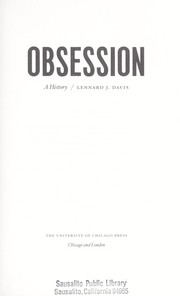 |
Obsession : ISBN: 0226137821 OCLC: 371102590 University of Chicago Press, Chicago : 2008. From the Publisher: We live in an age of obsession. Not only are we hopelessly devoted to our work, strangely addicted to our favorite television shows, and desperately impassioned about our cars, we admire obsession in others: we demand that lovers be infatuated with one another in films, we respond to the passion of single-minded musicians, we cheer on driven athletes. To be obsessive is to be American; to be obsessive is to be modern. But obsession is not only a phenomenon of modern existence: it is a medical category-both a pathology and a goal. Behind this paradox lies a fascinating history, which Lennard Davis tells in Obsession. Beginning with the roots of the disease in demonic possession and its secular successors, Davis traces the evolution of obsessive behavior from a social and religious fact of life into a medical and psychiatric problem. From obsessive aspects of professional specialization to obsessive sex and nymphomania, no variety of obsession eludes Davis's graceful analysis. Obsession also considers the clinical definition of the condition: Davis investigates the huge increase (estimates suggest up to 600-fold) in diagnosis of obsessive-compulsive disorder over the past thirty years. Surveying the many ways in which doctors today treat OCD, he points out the limitations of and contradictions within the biological definitions of the disease. Impassioned, witty, and learned, Obsession is for anyone-from compulsive hand washers to professional psychologists-who has been fascinated by, struggled with, or cultivated obsession. |
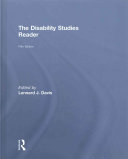 |
The disability studies reader ISBN: 9781138930223 OCLC: 948427196 The fifth edition of The Disability Studies Reader addresses the post-identity theoretical landscape by emphasizing questions of interdependency and independence, the human--animal relationship, and issues around the construction or materiality of gender, the body, and sexuality. Selections explore the underlying biases of medical and scientific experiments and explode the binary of the sound and the diseased mind. The collection addresses physical disabilities, but as always investigates issues around pain, mental disability, and invisible disabilities as well. Featuring a new generation of scholars who are dealing with the most current issues, the fifth edition continues the Reader's tradition of remaining timely, urgent, and critical. --Publisher's website. |
 |
The disability studies reader / ISBN: 041591471X OCLC: 35192183 Routledge, New York : 1997. |


